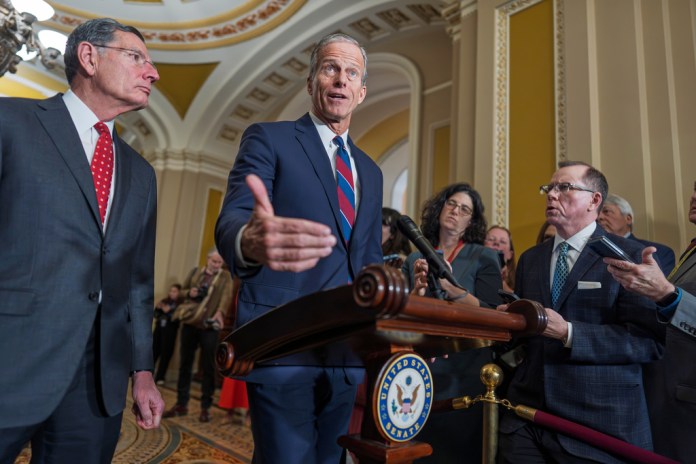Lawmakers Must Confront the 1,000-Pound Healthcare Gorilla
The article discusses widespread dissatisfaction among Americans with the healthcare system, despite the high levels of spending per capita compared to other OECD countries. Over 70% of U.S. adults feel that the healthcare system is not meeting their needs, primarily due to the confusing and opaque nature of health insurance. This complexity is exacerbated by rising premiums, which have increased nearly 60% since 2010 and are projected to reach record highs in 2024, while consumers are seeing little improvement in coverage or quality of care. The article highlights how insurance companies often deny legitimate claims, which deters Americans from seeking necessary medical care.
Additionally, the financial struggles and closures of rural hospitals have led to longer travel times for patients, especially in emergencies, aggravating health disparities in these communities. Despite these challenges, insurance companies continue to generate record profits, raising concerns about the consolidation of the health insurance market and its impact on consumer choice and competition. The author calls for reforms that would ensure fair payments to healthcare providers and reasonable profits for insurance companies, ultimately aiming to create a more balanced and efficient healthcare system that serves the needs of patients.
Americans by and large believe the healthcare system is failing them.
Despite spending more money per capita on healthcare than any other Organization for Economic Cooperation and Development country in the world, a recent poll found that more than 70 percent of U.S. adults feel that one way or another it is not meeting their needs.
One of the major drivers of this dissatisfaction is our confusing and opaque health insurance system, which poses challenges for many patients. Its complexity, high costs, and gaps in coverage have led nearly two-third of Americans to believe that health insurance providers are not transparent about what they cover, as well as left them feeling lost when it comes to navigating co-insurance payments and deductibles.
Private health insurance premiums have increased nearly 60 percent since 2010 and are predicted to reach a record high in 2024. Yet despite the dramatic cost increase, consumers are not getting their monies worth in the form of better coverage, access, or quality of care. In fact, health insurance companies excel in finding ways and all sorts of reasons to deny claims for medical care. This includes requiring prior authorization or “advanced notification” to treat mental health crises and for procedures designed to save lives, like early cancer screenings. As a result, many Americans have delayed or skipped care for fear of what the bills may amount to, defeating the very purpose of health insurance. Regardless of the reason, this practice must be addressed, as these companies have no excuse for denying, underpaying, or improperly processing legitimate claims submitted by patients and providers.
Such measures have limited access to care for Americans in other ways, as well. Providers, which have been struggling to bear the financial burden of skyrocketing equipment and labor costs, are now grappling with under payments by insurers that sometime fail to cover even the minimum cost of patient treatment. Rural hospitals have been hit especially hard and many have been forced to close.
For the 60 million Americans that rely on such facilities for healthcare this can mean significantly longer drive times to reach the next nearest hospital. This increased distance can have serious consequences, especially in emergency situations where every minute counts. Longer travel times may delay critical care for conditions like heart attacks, strokes, or severe injuries, potentially leading to worse health outcomes. For routine care and chronic disease management, the added travel burden can discourage patients from seeking timely medical attention, leading to missed appointments and delayed treatments. This situation can exacerbate health disparities in rural communities, particularly affecting elderly, low-income, or disabled individuals who may have limited transportation options.
But as patients, hospitals, and healthcare workers have struggled to get by, insurance companies have continued to pull in record revenues. In 2023, the top six health insurers generated almost $1.1 trillion in revenue, diverting billions away from patient care and all the while finding new and crafty ways to increase their profits.
Many of these issues stem from the health insurance oligopoly has been created in the wake of Obamacare’s passage.
Under current federal guidelines, 73 percent of MSA-level health insurance markets were considered highly concentrated in 2022 leaving consumers with little choice. Now insurance companies like United Healthcare have undertaken a number of acquisitions in recent years to further consolidate their pricing power. As they gobble up doctor groups, surgery centers, health data and technology units, and one of the largest pharmacy-benefits managers, the question becomes, what are the effects on rivals and consumers?
Investigators are now looking into these relationships and how it may affect compliance with federal rules, but it may not be enough. For too long the Federal Trade Commission provided health insurance companies carte blanche while conversely preventing hospitals and health systems from engaging in necessary mergers to level the playing field — despite the fact that they expand access to care and improve patient outcomes. This has resulted in a scenario where three largest group insurers now hold nearly twice the market of the largest health systems in each state, providing insurers with the pricing power and leverage to raise premiums and provide lower reimbursements to providers.
The has all happened to the detriment of the broader healthcare system. The question now is, how we can correct this imbalance? In order to have a fair and functional system that provides the best care to patients, makes fair payments to providers, and offers reasonable profits to insurance companies, our lawmakers need to address this disparity. It is time to confront the 1,000-pound gorilla in the room and find solutions to create balance and fairness and to ensure the long-term stability of the American healthcare system.
The views expressed in this opinion article are those of their author and are not necessarily either d or endorsed by the owners of this website. If you are interested in contributing an Op-Ed to The Western Journal, you can learn about our submission guidelines and process here.
" Conservative News Daily does not always share or support the views and opinions expressed here; they are just those of the writer."




